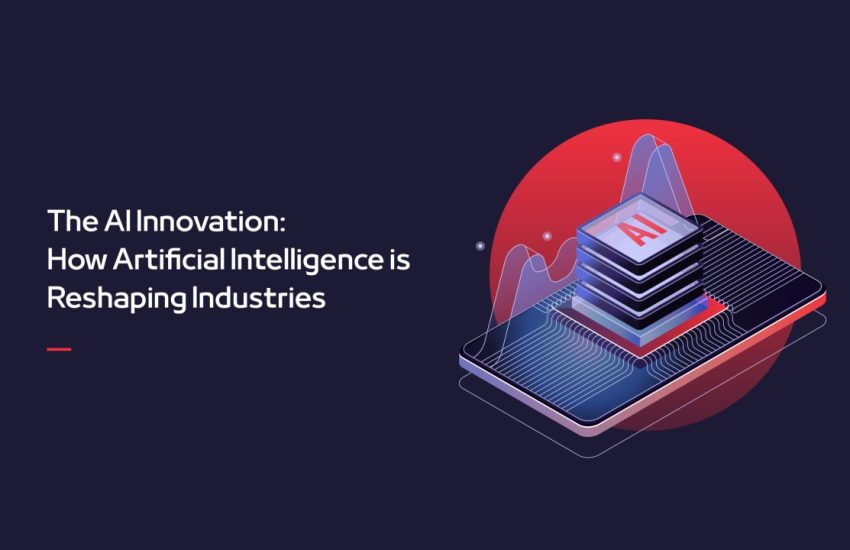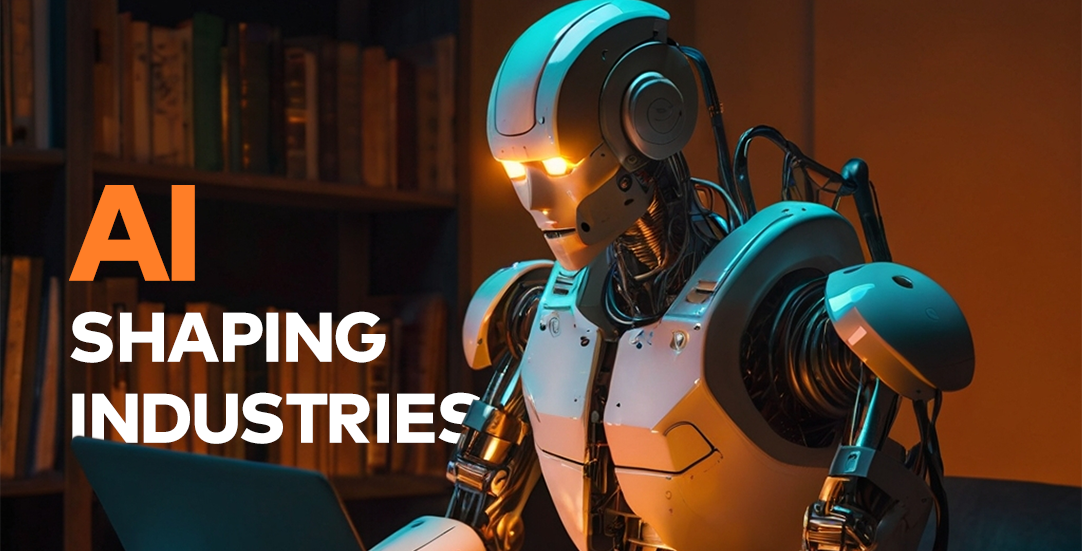Artificial Intelligence (AI) is no longer a futuristic concept—it’s a present-day reality driving transformation across industries worldwide. From healthcare to finance and retail to manufacturing, AI is revolutionizing how businesses operate, make decisions, and engage with customers. In this blog, we’ll dive into how AI is reshaping industries globally, supported by data, trends, and real-world applications.

1. AI Adoption: A Global Perspective
AI adoption is on the rise across various sectors. According to a 2023 report by McKinsey, 50% of companies globally have integrated AI into at least one business function, and this number is expected to grow exponentially.
| Industry | AI Adoption Rate (2023) | Projected Growth by 2025 |
|---|---|---|
| Healthcare | 45% | 70% |
| Finance | 60% | 80% |
| Manufacturing | 55% | 75% |
| Retail | 40% | 65% |
| Transportation | 35% | 60% |
2. AI in Healthcare: Revolutionizing Patient Care
AI is transforming healthcare by enhancing diagnostics, personalizing treatment plans, and streamlining administrative tasks.
Key Applications:
- AI Diagnostics: AI algorithms can detect diseases like cancer with higher accuracy than traditional methods.
- Predictive Analytics: Helps in predicting patient outcomes and preventing potential health risks.
- Telemedicine: AI-powered virtual consultations are improving accessibility to healthcare.
Data Spotlight: A study by Accenture estimates that AI in healthcare could save the industry $150 billion annually by 2026.
3. AI in Finance: Automating and Enhancing Decision-Making
The finance sector has been quick to adopt AI, leveraging it for fraud detection, algorithmic trading, and personalized banking experiences.
Key Applications:
- Fraud Detection: AI can identify unusual patterns and flag fraudulent activities in real-time.
- Robo-Advisors: Automated investment platforms are making financial planning more accessible.
- Credit Scoring: AI improves the accuracy of credit risk assessments.
Stat Insight: According to PwC, AI is expected to contribute $1.2 trillion to the financial sector by 2030.

4. AI in Retail: Enhancing Customer Experience
Retailers are using AI to analyze consumer behavior, optimize supply chains, and personalize shopping experiences.
Key Applications:
- Recommendation Engines: AI suggests products based on browsing history and preferences.
- Inventory Management: Predictive analytics help maintain optimal stock levels.
- Chatbots: AI-driven customer service bots provide 24/7 support.
Industry Impact: AI-driven personalization is expected to boost retail revenue by 15-20% over the next five years.
5. Challenges and Ethical Considerations
While AI offers numerous benefits, it also brings challenges, including data privacy concerns, job displacement, and ethical dilemmas related to decision-making transparency.
| Challenge | Impact | Solution |
| Data Privacy | Risks of data breaches and misuse of personal information | Implement strict data governance and security protocols |
| Job Displacement | Automation may replace certain job roles | Upskilling workforce and creating new job opportunities |
| Ethical Decision-Making | Biases in AI algorithms affecting fairness | Ensure diverse data sets and transparent AI development |
Conclusion
AI is undeniably reshaping industries across the globe, driving innovation, efficiency, and growth. However, balancing technological advancements with ethical considerations will be key to harnessing AI’s full potential. As industries continue to evolve, embracing AI responsibly will define the future of global business.


